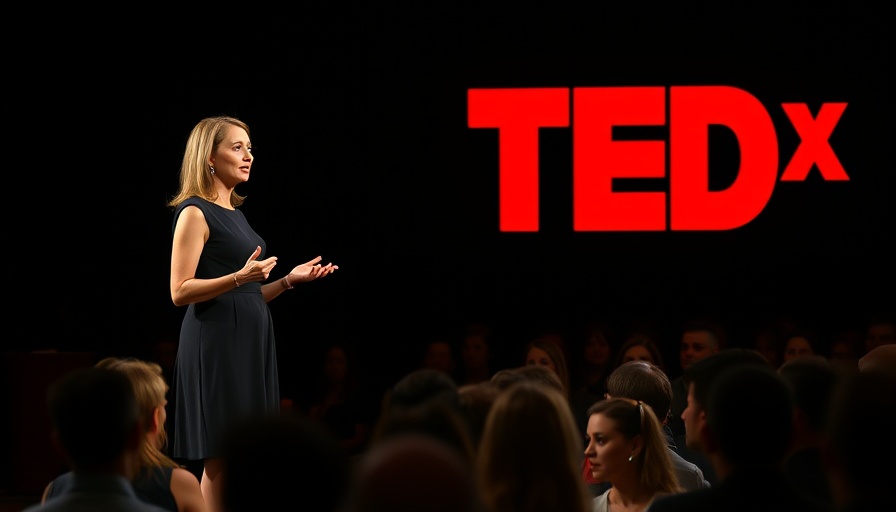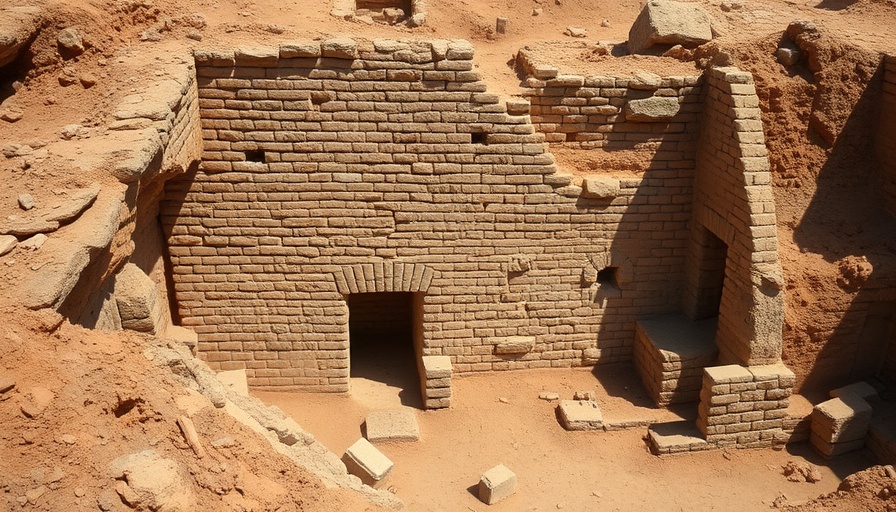
The Fascination with Death: A Personal Journey
At the tender age of seven, Jennifer Riley discovered her passion for the ancient Egyptians, captivated by their elaborate rituals surrounding death. This early fascination has evolved throughout her life, driving her to explore the cultural aspects of how societies interact with death. Today, she leads the charge in understanding contemporary practices surrounding grave goods, urging us to reflect on our connections with those we’ve lost.
In 'What do you want to be buried with? | Dr. Jennifer Riley | TEDxAberdeen', the discussion dives into the cultural significance of grave goods, exploring key insights that sparked deeper analysis on our end.
The Significance of Grave Goods: Bridging Cultures
Grave goods serve as a poignant reminder of how both ancient Egyptians and modern Britons confront mortality. While the methods evolved over millennia, the fundamental need to connect items with the deceased remains. In England, contemporary ceremonies often echo those of ancient cultures, where objects of significance help commemorate a life lived. Riley’s research indicates that these items offer not just comfort but also a narrative about the individual’s identity.
Personal Stories Behind Objects: The Heart of the Matter
As Riley delves into her own family history, she uncovers personal tales tied to tangible items she'd consider essential in her own end-of-life preparations. From her mother's beloved chocolate to essential handkerchiefs and favorite clothing, these objects represent the heart of their owner. In a society that often shies away from discussing death, such reflections encourage a deeper understanding and connection with those we love.
Cultural Reflections on Death: A Shared Experience
Despite cultural variations, our handling of death and memory-keeping through grave goods contains universal themes. In her poignant recounting, Riley implies that our identities are not merely isolated; they are interwoven with those of our loved ones. The treasures we choose to accompany them are testament to this bond, a physical manifestation of love and remembrance that transcends physical absence. In understanding this, we not only honor the deceased but also reinforce our own identities.
Defying Mortality: The Role of Memory and Legacy
Grave goods are more than objects; they serve as a psychological tool that aids in negotiating the grief of loss. By selecting personal items, we embody aspects of the deceased, creating an ongoing legacy. They become a form of resistance against mortality, a statement that love and memory persist even as life itself fades. Riley’s discussion emphasizes that the memories we keep allow parts of our loved ones to live on in us.
Encouraging Conversations on Death: Planning Ahead
In a world that often avoids the topic of death, Riley proposes a radical shift in our dialogue. She encourages families to openly discuss their wishes regarding their own grave goods, establishing a culture of preparedness and comfort around a universally shared experience. Engaging these conversations over cups of tea or other familiar beverages can foster closeness and bring families together in a shared understanding of mortality.
As professionals in various fields from healthcare to education, we should see the value in exploring our human experiences around death. Recognizing this universal element of our existence can enhance our approach to leadership, emotional intelligence, and the depth of relationships we cultivate with both clients and colleagues.
Let’s Break the Silence
The legacy of our loved ones ultimately shapes our lives long after they're gone. How we choose to remember them through grave goods is not merely about physical items; it’s a reflection of values, identities, and connections that span generations. Initiating discussions about preferred grave goods can promote understanding and help navigate the complexities of grief.
If you’re inspired by the thought-provoking insights shared in this analysis of Dr. Jennifer Riley's TEDx talk, consider framing your own discussions surrounding death with the loved ones in your life. By proactively embracing these tough conversations, we all pave the way for more meaningful connections and resilience in the face of loss.
 Add Row
Add Row  Add
Add 




Write A Comment